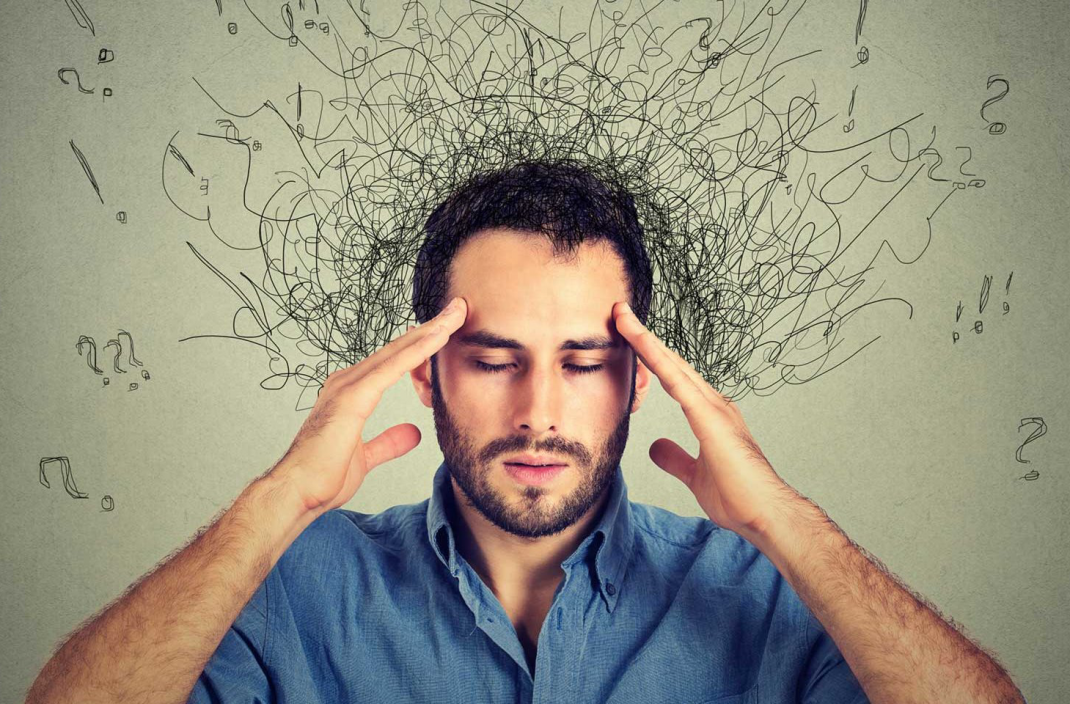Anxiety is a problem that affects more of us each day. This is especially true in today’s crazy, chaotic culture, that isolates and atomises individuals.
Anxiety symptoms can vary from minor negative thoughts to crippling panic attacks.
Some people turn to Hormone Replacement Therapy as the cure-all for anxiety.
HRT or TRT may improve anxiety in some cases and in rare situations, cure it. In other cases it may have no effect at all, or even make it worse.
Doctors are also trigger-happy on prescribing anti-depressants for anxiety.
Happy pills should be your absolute last resort, only once you have exhausted all other possibilities.
Generally though, anxiety is a mental condition. While optimising your hormones may help, ultimately you may have to look at other solutions.
Below are the most effective ways to reduce anxiety naturally – backed by science and research.
The solutions I present today may or may not work for you. Everyone’s brain and body works differently. Keep what works and discard what doesn’t.
Points 8 and 9 are especially important in today’s society and culture.
1) Eat A Healthy Diet

A healthy diet alone can make significant improvements to your mood and anxiety.
This doesn’t have to be complicated.
Eat mostly whole, unprocessed foods and avoid refined, processed foods as much as possible – especially processed sugar and meat.
Include mostly whole grains, vegetables and fruit, and quality protein (meat, fish, nuts, beans and legumes, soy) and quality fats (olives, avocado, nuts, coconut, healthy oils).
Avoid junk food, fast-food and high sugar drinks and desserts.
Drink lots of water.
Don’t abuse supplements and use “bio-hacking” as a substitute for a shitty diet. Eat healthily and only supplement when absolutely necessary.
“I don’t have time to eat healthy” is not an excuse. If your mental health is important, then your diet should be too.
2) Consume Probiotics And Fermented Food.
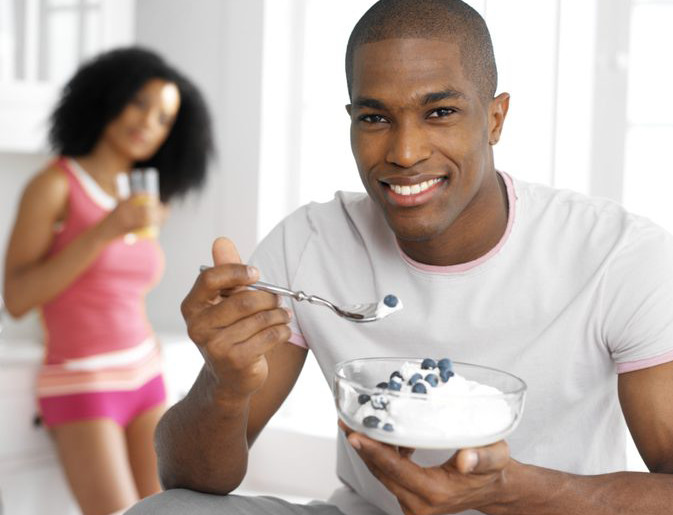
Along with a healthy diet, a healthy stomach and gut should be your next goal.
The gut is sometimes referred to as the “second brain”, so you want to take good care of it.
One of the single most important things you can do for your health is take care of your gut and the good bacteria that reside there.
Science is increasingly demonstrating that an improved gut equals an improved mood and mind.
Ensure that you maintain a healthy gut by including probiotics and fermented food in your diet.
These can include yogurt, sauerkraut, tempeh, pickles, kombucha and more. Probiotic supplements are fine too.
You may not only reduce anxiety, but also reap the benefits of weight loss, improved digestion, enhanced immune function, better skin and a reduced risk of many diseases.
3) Exercise

Exercise is so powerful at improving mood, it may even become addictive.
It offers immense health benefits that positively affect your weight, muscles and bones, your skin, your hormones and your sex life.
More importantly, it may help improve sleep, brain health, energy levels and make you feel happier.
Regular exercise, like a healthy diet, should be a no-brainer.
4) Reduce Or Abstain From Alcohol
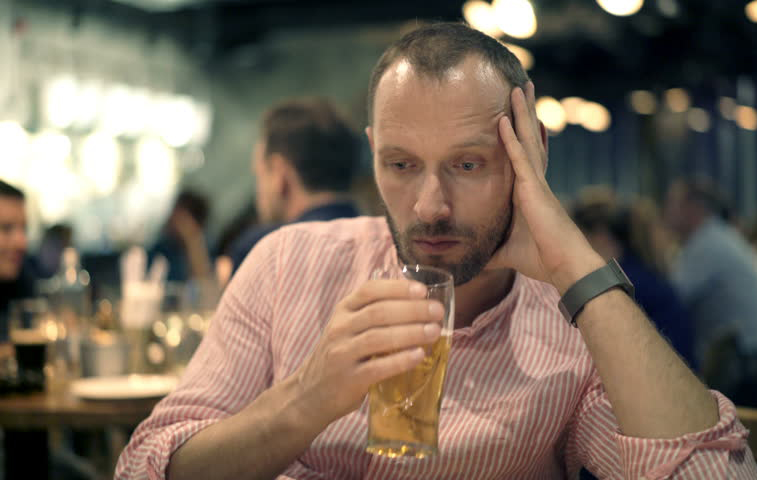
Alcohol is a depressant – period! It disrupts the delicate balance of chemicals that our brains rely on.
This means that alcohol can negatively affect our thoughts, feelings and actions – and sometimes our long-term mental health.
If you struggle with anxiety and drink alcohol, this should be a giant red flag for you.
In the past, we were told that light to moderate drinking could offer health benefits. That has now been scientifically debunked!
The latest research (2018) has shown that alcohol offers no positive effects whatsoever. At the very best, it doesn’t do any harm, in very small amounts.
Mostly though, it has a negative impact on your health and lifespan and increases your risk of chronic diseases.
Alcohol can be a bitch to quit, if you enjoy it. It has been socially ingrained into our culture and lives.
If you struggle to quit, don’t be ashamed to seek help. (see below on dealing with addictions)
There is NO good reason to consume alcohol anymore. Especially if you struggle with anxiety and depression.
5) Quit Smoking

While many people are finally waking up to the dangers of smoking, there are still those that use it as a way to relieve stress and anxiety, especially socially.
Ironically, smoking is associated with an increased risk of developing an anxiety disorder.
Quitting smoking has been scientifically associated with improved mental health and a decrease in risk of alcohol and other drug use.
6) Practice Meditation And/Or Yoga
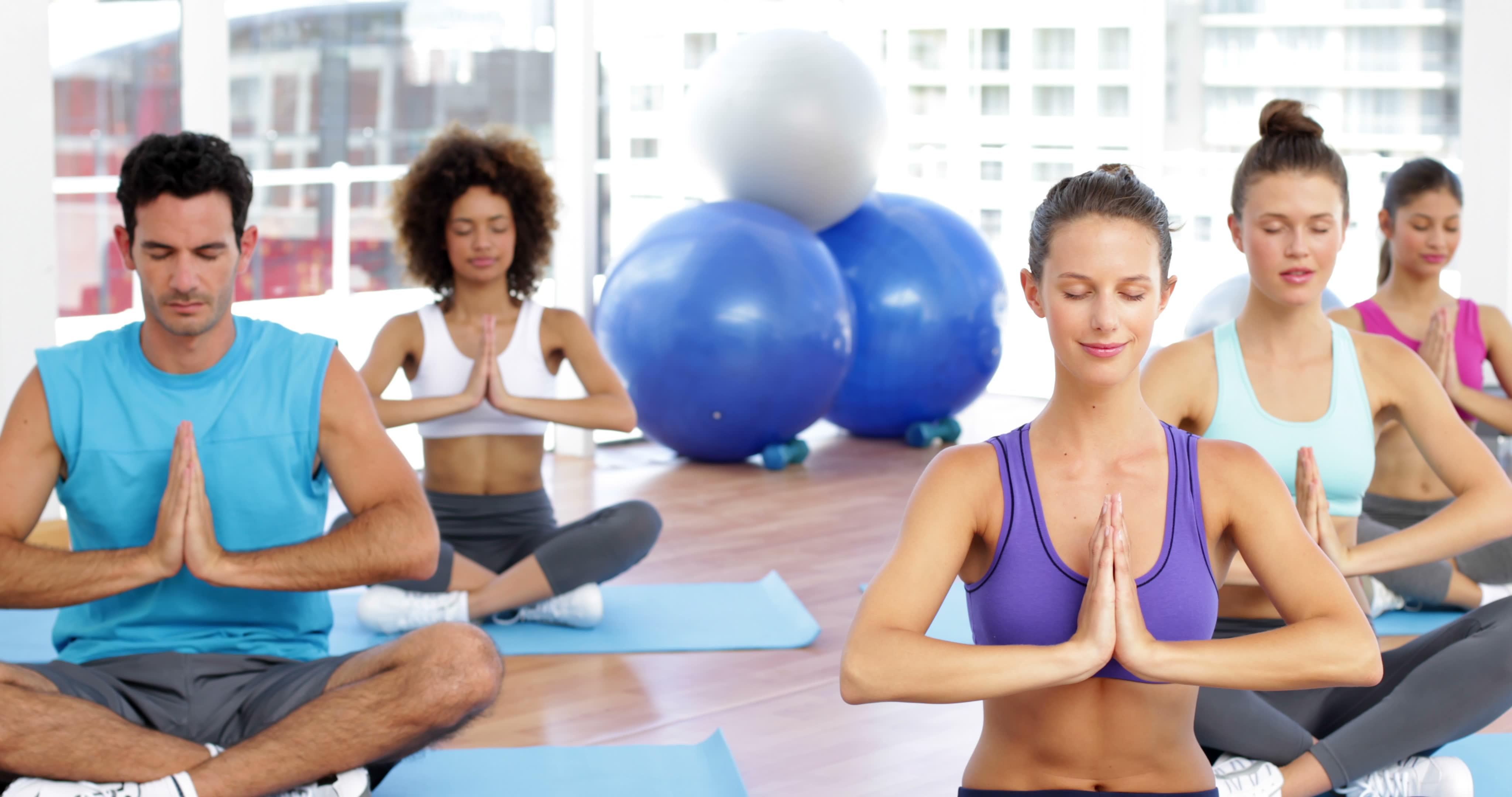
Meditation has been shown to reduce symptoms of anxiety, especially mindfulness-based meditation.
However, this particular practice may be hit or miss – it’s one of those things you just have to try and give some time and see if it works for you.
Meditation is part of my morning ritual and is great for calming my frantic monkey mind.
A more physical practice that’s probably more effective too, is yoga.
Yoga involves simple meditation along with some physical exercise and stretching, usually by adopting different bodily postures.
Meditation and yoga may not be for everyone. Give it a try and see if it helps improve your mood and anxiety.
7) Limit Caffeine
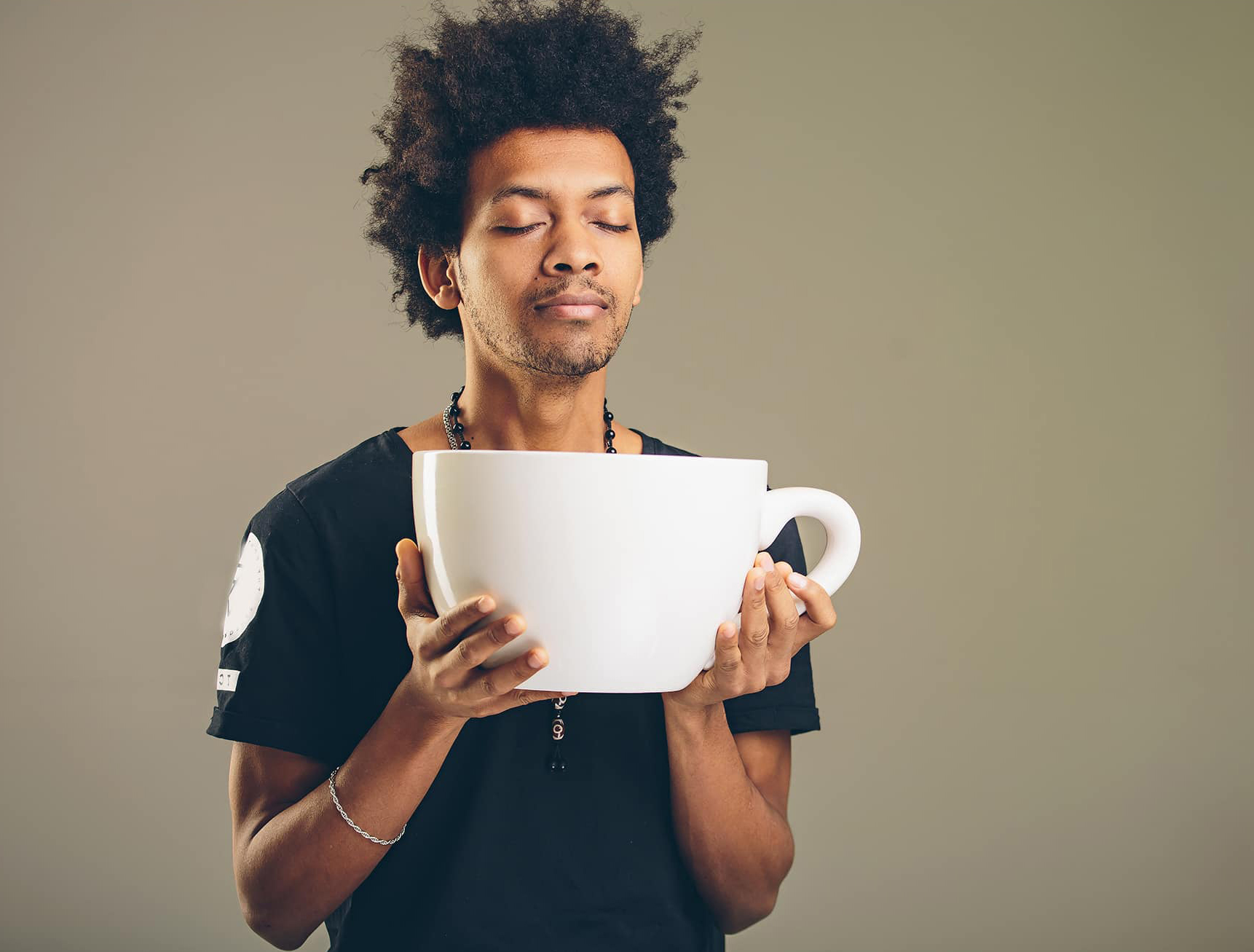
In general, low to moderate amounts of caffeine may improve your mood, metabolism and mental and physical performance.
However, high doses of caffeine may have unpleasant and even dangerous side effects.
These effects may vary from individual, so only you will be able to determine your optimal amount.
The negative effects of too much caffeine may include anxiety, insomnia, fatigue, high-blood pressure and rapid heart rate.
All of which can have a negative impact on your mental well-being.
As with many other foods, moderation is key. Monitor the effects caffeine has on you, and reduce if necessary.
8) UNPLUG! Less Virtual, More Reality
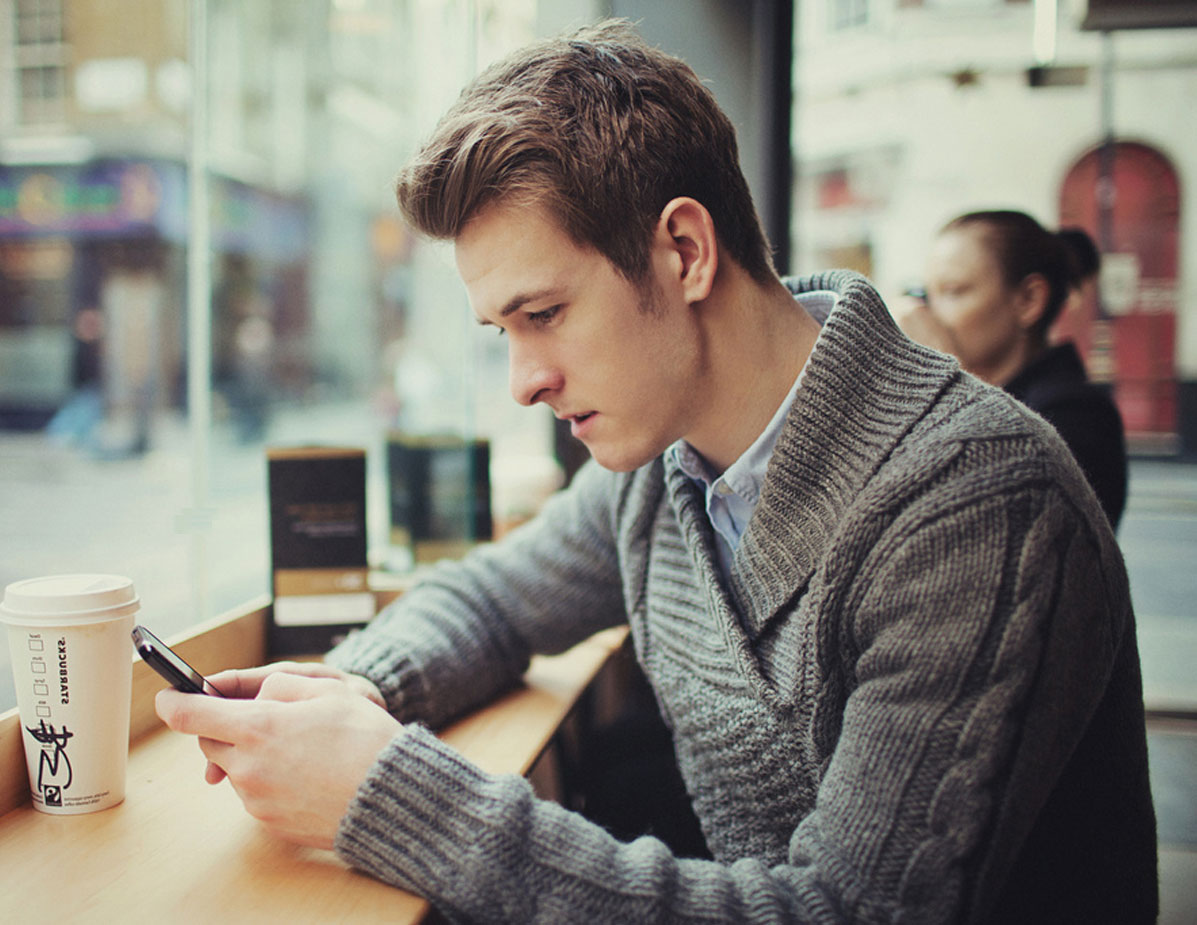
Social media is making people miserable. And LESS social. Go figure.
For many people, this virtual environment is toxic and fosters a “Keeping up with Joneses” mindset, where everyone tries to one up each other. Bigger is better. More is better.
As people spend more time online entertaining fake, superficial connections, they spend less time cultivating real-life, meaningful friendships and relationships.
This environment is a breeding ground for negative thoughts, anxiety and depression. Worse, it atomizes you and cuts you off from real connections.
UNPLUG!
Spend less time online and more time in the real world.
Talk to people, face to face preferably. Smile. Look people in the eye. Say hello. Make new friends. Talk to your neighbor and build/become part of a community.
Go to the gym. Join a martial arts class. Participate in a sport or hobby. Interact with other people.
Sure, it will take some courage, if you’re a little out of touch. But you’ll feel confident and proud once you do.
That momentum will move you forward to bigger successes and, most likely, improve your mood and help your anxiety.
Contribute something to the world, rather than mindlessly consuming.
Having a purpose where you provide value will give your life meaning, and reduce feelings of anxiety.
9) Deal With Your Issues And Addictions (Porn, Gambling, Drugs, Video Games)
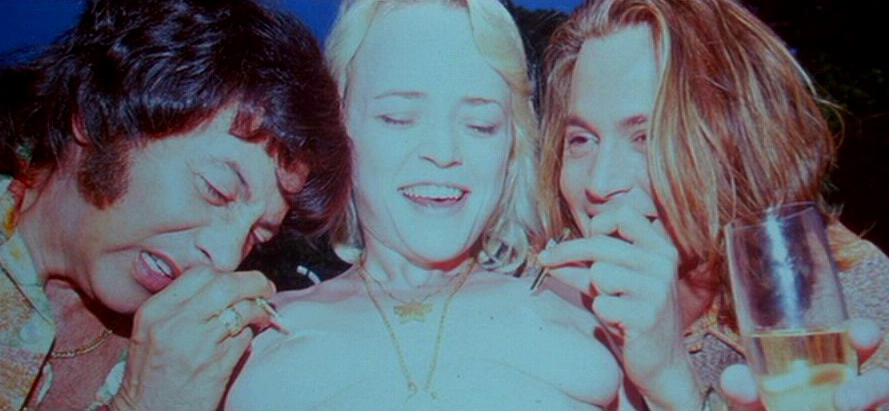
One of the biggest contributors to anxiety, depression and suicide is unresolved issues and addiction.
These issues may stem from as far back as childhood, or be a result of a life trauma event.
Many people don’t know how to cope or deal with these issues, and turn to addictive behaviors and substances to escape.
These may include: alcohol, drugs, porn, gambling, reckless sexual behavior, video games and more.
The longer these issues remain unresolved, the more likely it is that you repeat and increase these addictive habits.
These addictions fuel even more anxiety and depression, which may lead to an increase in the addictive behaviors.
It can have a vicious snowball effect.
The best way to tell if you’re an addict is to try and quit, or take a significant break from the behavior.
If you find yourself unable to, or are drawn back in the addictive behavior even though you don’t want to, you may need to seek help.
Counseling or therapy is highly recommended.
It is usually recommended to seek out help from friends or family. If you are in a desperate position, or, you have someone that you completely trust and can be open with, then pursue this path.
However, personally, I recommend a qualified therapist. A lot of times family members may be the cause or a contributer to your anxiety / addiction. Also, constantly unloading on a friend/family member may lead to resentment or adding to their own anxiety.
Using a therapist allows you to unload guilt-free and not hold anything personal back, which you might not want to share with friends or family. Therapists can be life saving.
IMPORTANT! Do NOT feel ashamed for asking for help, or for getting help!
Shame is a huge driving force of depression and addiction. It’s ok to fail. It’s ok to not be perfect. It’s ok to ask for help.
Reducing/quitting your destructive addictions can be life-changing. Seek therapy if necessary.
It may take work. It may be hard. It will be worth it!
Conclusion
A lot of these suggestions may seem simplistic and obvious. Don’t be quick to dismiss them.
If you struggle with anxiety, slowly try integrating one strategy at a time and give it some time.
If it works – great! Stick with it. Try another. If it doesn’t work, move on to the next.
If you have any other suggestions, leave a comment below.
If any of these strategies helped you, let us know!
Till next time!
Paolo
References
https://www.healthline.com/nutrition/anxiety-disorder-symptoms
https://www.ncbi.nlm.nih.gov/pmc/articles/PMC4122254/
https://www.psychologytoday.com/us/blog/where-addiction-meets-your-brain/201408/anxiety-and-addiction
https://www.ama.org/publications/MarketingNews/Pages/feeding-the-addiction.aspx
https://www.healthline.com/nutrition/probiotics-101
https://www.healthline.com/nutrition/10-benefits-of-exercise
https://www.healthline.com/nutrition/anxiety-disorder-symptoms

